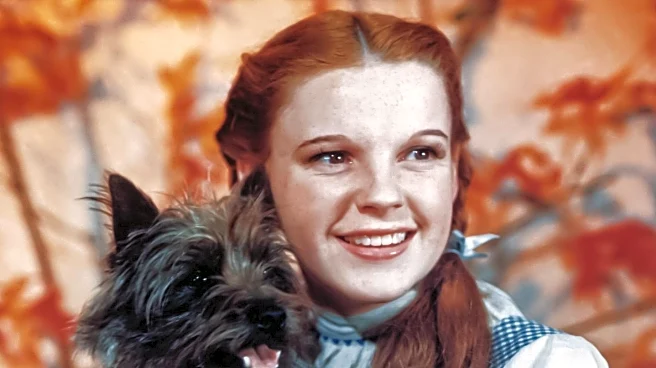What's Happening?
A reader's inquiry about the 'Wizard of Oz' Lodge at Bass Lake, Indiana, has prompted a historical exploration of the site. The lodge, originally built in 1907 as the Center View Hotel, was rebranded in 1960
by Harry Neal Baum, son of 'Oz' author L. Frank Baum, as The Wizard of Oz Lodge or 'Ozcot.' The lodge operated until the late 1960s. This historical connection is being highlighted in a free lecture at the Henry F. Schricker Knox Branch of the Starke County Public Library. The event, scheduled for October 28, will be presented by librarian and historian Laura Keyes, who aims to clarify the facts surrounding the lodge's history.
Why It's Important?
The event underscores the cultural and historical significance of the 'Wizard of Oz' in American literature and its ties to Indiana. The lodge's history reflects the enduring legacy of L. Frank Baum's work and its impact on local tourism and cultural heritage. This lecture provides an opportunity for 'Oz' enthusiasts and local residents to engage with a piece of literary history, potentially boosting interest in regional history and tourism. The event also highlights the role of public libraries in preserving and disseminating local history.
What's Next?
Following the lecture, 'Wizard of Oz' enthusiasts can look forward to the release of 'Wicked: For Good,' the second installment of the 'Wicked' film franchise, on November 21. This continuation of the 'Oz' narrative in popular culture may further stimulate interest in the original stories and their historical contexts. Additionally, the library's event may inspire further research and preservation efforts related to the 'Wizard of Oz' and its connections to Indiana.
Beyond the Headlines
The story of the 'Wizard of Oz' Lodge at Bass Lake highlights broader themes of how literature can influence real-world locations and cultural identity. The lodge's history is a testament to the lasting impact of Baum's work and its ability to inspire themed attractions and community interest. This event also illustrates the importance of local historians and librarians in uncovering and sharing lesser-known aspects of cultural heritage.










